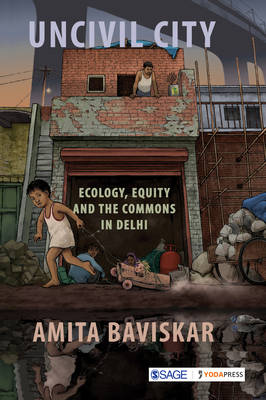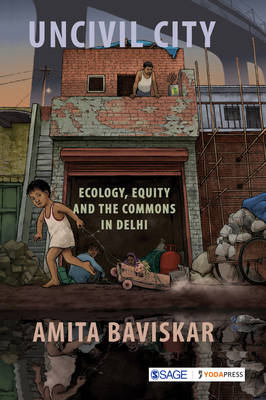
Door een staking bij bpost kan je online bestelling op dit moment iets langer onderweg zijn dan voorzien. Dringend iets nodig? Onze winkels ontvangen jou met open armen!
- Afhalen na 1 uur in een winkel met voorraad
- Gratis thuislevering in België vanaf € 30
- Ruim aanbod met 7 miljoen producten
Door een staking bij bpost kan je online bestelling op dit moment iets langer onderweg zijn dan voorzien. Dringend iets nodig? Onze winkels ontvangen jou met open armen!
- Afhalen na 1 uur in een winkel met voorraad
- Gratis thuislevering in België vanaf € 30
- Ruim aanbod met 7 miljoen producten
Zoeken
€ 44,95
+ 89 punten
Omschrijving
As cities become habitat for most of humanity, the question of their ecological capacity to sustain lives worth living becomes ever more critical. Yet, when we listen to debates about city planning and governance, and observe urban environmental campaigns on the ground, we notice that they have little to do with ecology or justice. To examine this contradiction, Uncivil City: Ecology, Equity and the Commons in Delhi looks at two decades of environmental politics in Delhi--across homes and workplaces, ordinary streets and extraordinary spectacles, and the river and the Ridge. It argues that the terms of the discourse--what is an environmental issue, who is authorised to speak, and which modes of action count as legitimate--are partial, particularistic and perverse. 'Bourgeois environmentalists', who claim to speak in the public interest, for nature and society, have made the city what it is: unfair and unliveable. Only citizenship and civility will save the commons--air, water, space and trees--upon which cities depend for survival.
Specificaties
Betrokkenen
- Auteur(s):
- Uitgeverij:
Inhoud
- Aantal bladzijden:
- 300
- Taal:
- Engels
Eigenschappen
- Productcode (EAN):
- 9789353289409
- Verschijningsdatum:
- 23/03/2020
- Uitvoering:
- Hardcover
- Formaat:
- Genaaid
- Afmetingen:
- 140 mm x 216 mm
- Gewicht:
- 485 g

Alleen bij Standaard Boekhandel
+ 89 punten op je klantenkaart van Standaard Boekhandel
Beoordelingen
We publiceren alleen reviews die voldoen aan de voorwaarden voor reviews. Bekijk onze voorwaarden voor reviews.











